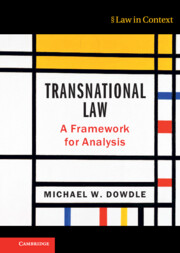“A legal system exists,” Joseph Raz claims, “if and only if it is in force.” By this he means to suggest that the efficacy of law—that is, its capacity to control the population to which it applies—is necessary for its identity as such. Despite widespread recognition that efficacy is a condition of the existence of law, however, little time has been spent analyzing the notion. This article begins an attempt to make up the deficit. I make the case for efficacy as necessary for law and go on to develop and defend an account of the concept that is broadly Kelsenian in spirit. In doing so I address questions concerning the relationship between obedience and enforcement in an account of the existence of a legal system as well as relating the discussion to that concerning the ontological status of international law.


